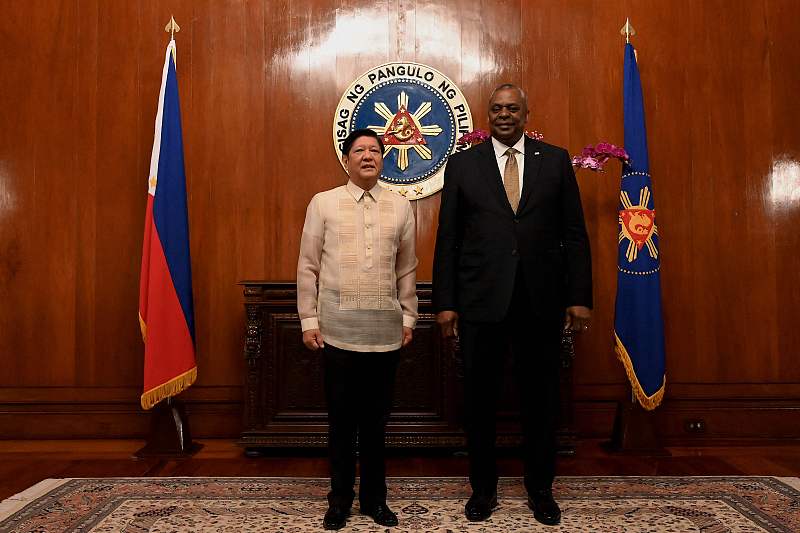'Multi-aligned' policy urged for Manila
By PRIME SARMIENTO in Hong Kong | China Daily Global | Updated: 2023-03-30 10:31

The Philippines needs to pursue a "multi-aligned" foreign policy, be vigilant and prioritize its national security interests to avoid being used in a proxy war, experts said. The warning came on the back of an enhanced military alliance between the Southeast Asian country and the United States under the Enhanced Defense Cooperation Agreement, or EDCA.
Philippine President Ferdinand Marcos Jr said on March 22 that four locations where the US can build additional military facilities agreed by the two sides in February — in addition to five existing bases — are to be announced soon.
Former Philippine national security adviser Clarita Carlos said the US "took advantage" of the Philippines' dispute with China over the South China Sea in securing the additional EDCA sites. Carlos said that the US is using the Philippines as part of its geopolitical strategy to prevent China's development.
Carlos added that instead of siding with either China or the US, the Philippines should prioritize its national interest and pursue "multi-alignment". She said there is a need to create a multipolar world, which hosts many centers of power and is not dominated by one superpower.
Anna Rosario Malindog-Uy, vice-president of external affairs for the Manila-based Asian Century Philippines Strategic Studies think tank, said the expansion of EDCA sites will not only militarize the Philippines but also the wider Asia-Pacific region. "EDCA expansion could propel an arms race in the region," Malindog-Uy said.
Former Philippine undersecretary for foreign affairs Ernesto Abella said any "additional pressure" caused by the expansion of US military access will affect the geopolitical balance not only in the Philippines but also in the region.
The Philippines and the US signed the EDCA in 2014, allowing the US military to rotate troops and operate facilities in the Philippines. In 2016, the Philippines and the US identified five EDCA sites.
In February, following US Defense Secretary Lloyd Austin's state visit to the capital Manila, the two sides announced that the US military will have access to four additional sites.
Marcos said in a March 22 press briefing that some of the additional EDCA sites will be in Palawan and the northern Philippines. There have been reports that one of the new EDCA sites will be located in the northeastern province of Cagayan.
Cagayan Governor Manuel Mamba said he opposes the plan to make the province an EDCA site as having foreign forces stationed there is "inimical" to the interests of local residents and the province, according to a report in The Manila Times newspaper.
Abella, the former foreign affairs undersecretary, said the Philippines needs to remain independent and neutral. He said while it is "valid" for the Philippines to seek US help in improving its armed forces, Philippine government officials also need to publicly acknowledge that the country will continue to abide by its one-China policy.
He said it is important that the Philippines has a clear foreign policy position: "We can't allow other nations to define us. We need to define ourselves."
























